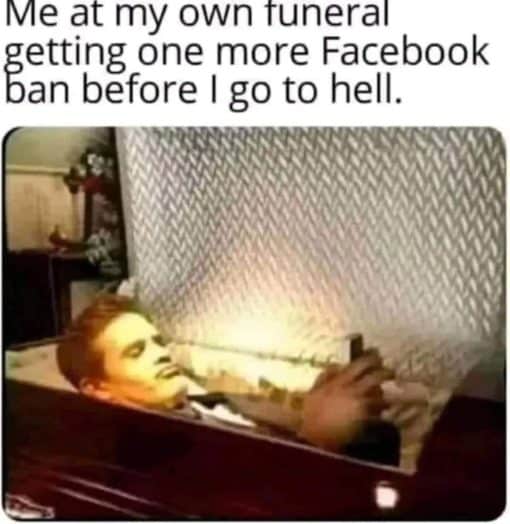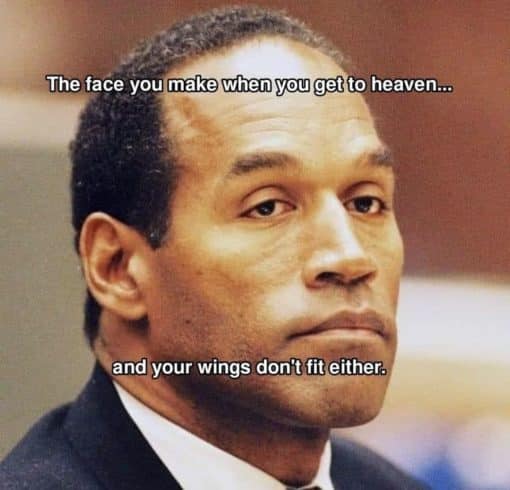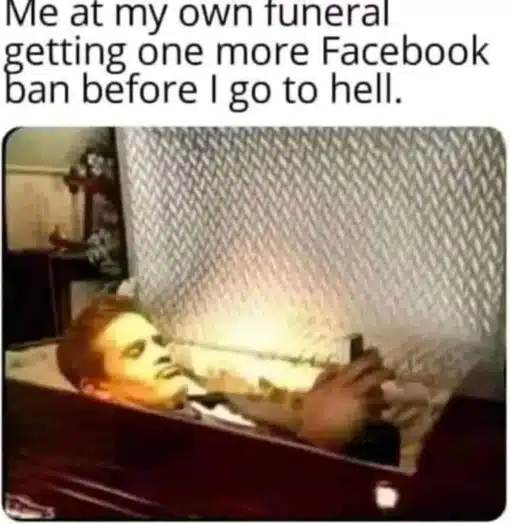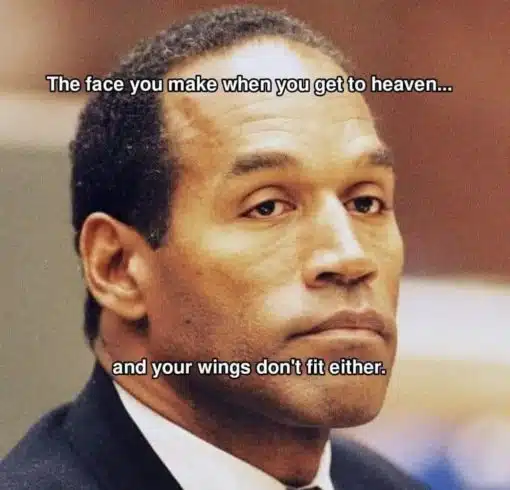Top 50 Going to Hell Memes
RANKING FOR BEST Going to Hell Meme
Welcome to “Going to Hell Memes Ranked” on topyoular.com, the ultimate destination for those who love to walk the line between hilariously irreverent and daringly dark humor. I’m your guide to the very best “Going to Hell” memes, carefully curated and ranked based on the votes of people just like you who can appreciate a good laugh in the face of eternal damnation. This is not just any meme collection; it’s a dedicated showcase of the top 50 memes in the “Going to Hell” category, ensuring you’re getting the cream of the crop, the memes that have made even the stoic among us crack a smile.
Here, we’ve created a space where laughter meets the taboo, and the result is a cathartic journey through humor that some might say is a little on the wicked side. As you scroll through our ranks, you’ll find that these aren’t your everyday internet jokes. Each meme has fought its way to the top, battling through votes to earn its spot on the list. From playful pokes at the afterlife to devilishly clever quips, our selection spans a variety of styles, ensuring there’s a little something sinful for everyone.
I pride myself on being the gatekeeper to this collection of damnation-worthy humor. Our ranking page is dynamically updated based on your votes, so you’re always seeing the best of the best according to the humor of our community. Whether you’re here to find a guilty chuckle, looking to share a meme that’ll have your friends questioning your place in the afterlife, or simply curious to see what kinds of jokes make others tick, you’ve come to the right circle of hell.
Remember, as you venture through “Going to Hell Memes Ranked” on topyoular.com, you’re not just browsing memes; you’re participating in a communal celebration of dark humor at its finest. So vote for your favorites, share with those who have a twisted sense of humor like yours, and maybe, just maybe, you’ll find that being condemned has never been so entertaining.

The image presents an absurd and humorous scenario with overlaid text reading, "Me at my own funeral getting one more Facebook ban before I go to hell." This text is placed above a digitally altered picture showing a person in a casket appearing to use a smartphone. The casket itself seems to be positioned in a room that looks like it could be used for funeral services, adding to the dark comedic juxtaposition between the solemnity of funerals and the casualness of social media use.
The humor in this meme primarily stems from the juxtaposition of life and death with the trivialities of modern digital life. Funerals are inherently serious occasions that signify a person's final departure from the living world. In contrast, getting banned from Facebook is a trivial event in the grand scheme of life, and placing such a minor inconvenience in the context of one's own funeral underlines the silliness of worrying about social media standing.
Another layer of the joke relies on the idea that someone's habits or addictive behaviors with social media are so strong that they persist even beyond the grave. The person in the casket, an undead figure, mockingly engages with their phone one last time, a poke at the idea that for some, social media is as enduring as the afterlife. The morbid concept of checking social media from the afterlife is delightfully absurd.
Additionally, the comical statement "before I go to hell" suggests a self-deprecating sense of humor, as the person lying in the casket is seemingly unconcerned about the moral or spiritual implications of their afterlife, but rather humorously preoccupied with the mundane issue of being banned from a social platform. This sort of tongue-in-cheek acknowledgment of personal failings can be particularly relatable and amusing to people who also take a light-hearted view of their missteps.
Moreover, the reaction to being banned from a platform like Facebook is typically one of frustration or annoyance. To imagine that as a foremost concern at one's own funeral caricatures the overinvestment in digital presence and offers commentary on how intertwined online life has become with daily existence, poking fun at the possibility of digital concerns overshadowing even the most critical moments of human life.
Lastly, the image appeals to a broader commentary on contemporary social behavior. It reflects the ubiquitous nature of technology and how it can lead to comical, if not slightly troubling, reflections on personal priorities. The exaggerated scenario depicted in the meme thus finds humor in the absurd and speaks to the pervasive role of social media in modern life, satirizing its reach even into the traditionally reverent and solemn space of a funeral. Me at my own funeral getting one more Facebook ban before I go to hell
Me at my own funeral getting one more Facebook ban before I go to hell

The image shows a man expressing a certain level of discomfort or skepticism. His expression is somewhat stoic, with an undertone of mild disbelief or resignation. The setting appears to be an official or formal environment, possibly a courtroom, as indicated by the backdrop and the man's attire, which includes a suit.
Text overlaid on the image dips into the realm of humor by contrasting the solemn expression on the man's face with a hypothetical and lighthearted scenario. The top part of the text reads, "The face you make when you get to heaven...". This sets up the viewer to expect a punchline related to the afterlife or spiritual expectations.
The second part of the caption concludes the joke with "...and your wings don't fit either." This punchline suggests a situation where the individual, after supposedly reaching heaven, faces an unexpected and humorously mundane problem — the wings bestowed upon them being the wrong size.
The humor in the image arises from the juxtaposition of a profound experience, such as arriving in heaven, with a common, trivial inconvenience like wearing something that does not fit. This combination of the sacred with the profane often elicits amusement due to its absurdity.
Additionally, the man's expression, which does not conventionally convey joy or awe that might be associated with achieving eternal paradise, ironically complements the notion of a less-than-ideal heavenly welcome. His face, rather than showing elation, seems to illustrate the exact mild frustration one might feel if confronted with ill-fitting wings upon arrival in heaven.
Lastly, the image might be funny to people because it uses hyperbolic humor, exaggerating a personal mishap to celestial proportions. The image plays on the contrast between expectations and reality – an age-old source of comedy – and in doing so, it generates a shared chuckle over the shared human experience of things not going quite as imagined, no matter how grand the setting. The face you make when you get to heaven and your wings don t fit either
The face you make when you get to heaven and your wings don t fit either

